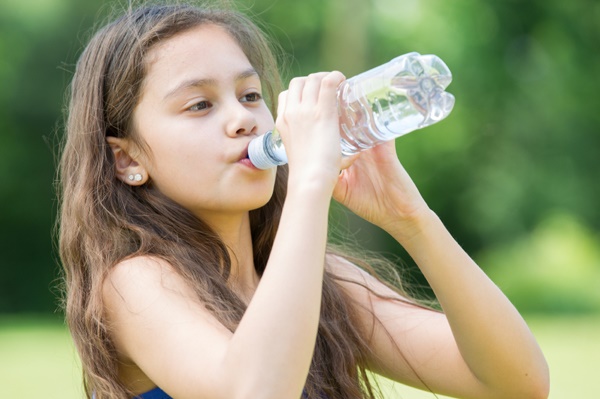
Many people interpret the term dehydration as a relatively uncommon condition that may follow a time of illness, such as gastroenteritis or diarrhoea. Less understood, is the fact that medically, different levels of dehydration are recognised, varying from mild to moderate to severe.¹,² Whilst extreme dehydration can be life threatening, all levels of dehydration have a negative impact on the healthy functioning of the body.³
What are the different levels of dehydration? ¹, ²
- Dehydration can be defined as the loss of water and salts essential for normal body function. This can vary from mild to severe. The levels include:
- Mild:About 1% – 5 % of body fluid is lost. Whilst even mild dehydration can lead to a reduction in performance³, it is usually treatable by increasing water intake
- Moderate:Up to approximately 10% fluid loss can result in lethargy, sunken eyes and darker coloured urine. It could also begin to impact on the skin’s elasticity and appearance. Ideally, electrolytes should be replaced as fast as possible for quicker recovery. An oral electrolyte solution like REHIDRAT® helps to replenish lost fluids and assist with recovery.
- Severe: More than 10% loss of bodily fluid can have serious medical consequences causing low blood pressure, disorientation, restricted neuromuscular control and ultimately can even cause death. Immediate medical intervention is required.
Why is it so important to stay hydrated?
The human body depends on water to survive. Every cell, tissue, and organ needs water to function correctly; to maintain body temperature, remove waste, aid digestion, regulate blood pressure and lubricate joints. 4 Water is needed for good health.
Who is most at risk?
- Infants and children – Due to their smaller body weight and high turnover of water and electrolytes, infants and children are vulnerable to dehydration. They're also the group most likely to experience diarrhoea.
- Older adults. With age, the body's ability to conserve water is reduced, as is the sense of thirst.
- People with chronic illnesses. Diabetes and other chronic illnesses, such as kidney disease and heart failure.
- Endurance athletes. Whilst anyone who exercises strenuously or in hot, humid weather can become dehydrated, endurance athletes are at particularly high risk as their bodies may lose more water than they can absorb7
The REHIDRAT® Solution
REHIDRAT® contains an optimal balance of sugars, salts and minerals to replenish lost fluids and help prevent and treat dehydration and electrolyte depletion. Safe for babies older than 3 months, it contains no artificial preservatives, colourants or sweeteners and is available in 3 flavours – Blackcurrant, Orange and Vanilla.
REHIDRAT® sachets are readily available on-shelf at Pharmacies, Clicks and Dis-Chem stores nationwide.
Join us on Twitter: @Rehidrat
¹ http://patient.co.uk/doctor/dehydration-in-children
²http://www.menshealth.co.uk/food-nutrition/drink-recipes/fight-the-six-stages-of-dehydration-347578
³ http://tunedintocycling.com/2012/07/25/dehydration-and-over-hydration-hyponatremia-for-the-cyclist/
4 http://www.healthtipsportal.com/10-warning-signs-that-your-body-is-lacking-water




 Publications
Publications
 Partners
Partners














